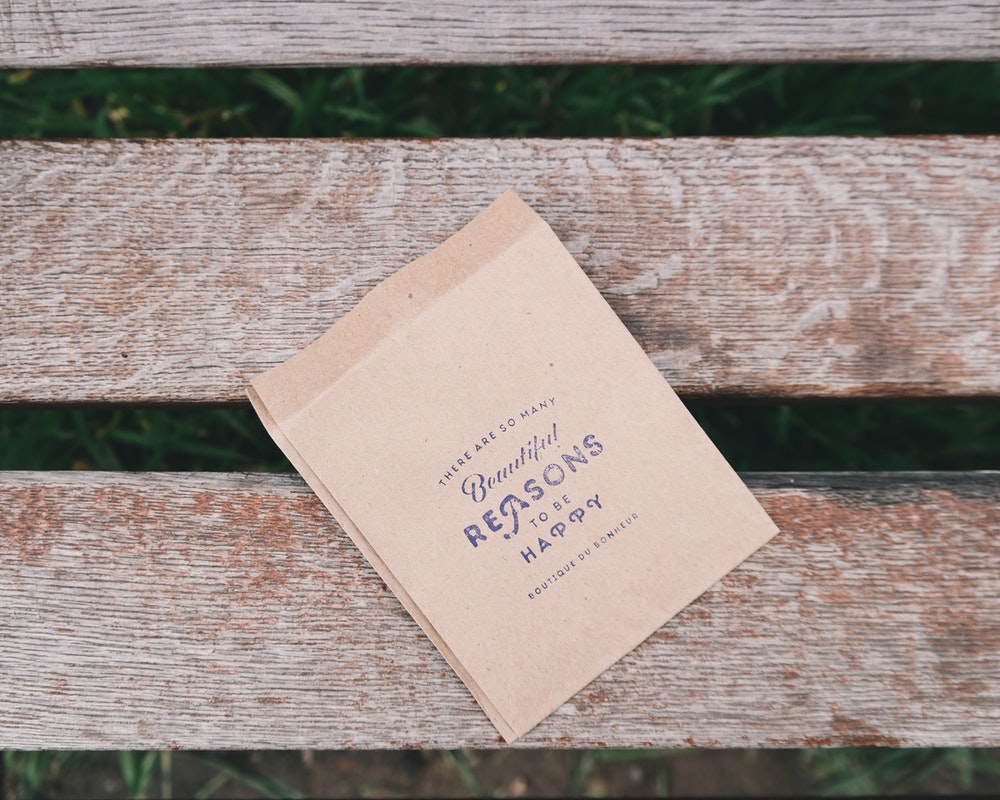Product packaging plays a big role in consumer decision-making. Good interactive product packaging does more than communicate what you can offer customers; it also reflects your business’s values, which helps you build a trustworthy brand.
As a result, many businesses now take their packaging seriously. What type of packaging material would attract the attention of customers and keep the products in good condition? Bonus points if the packaging material is also eco-friendly.
If you’re considering this type of packaging, why not go for paper bag packaging?
Paper bags have come a long way since they were first mass-produced in 1852 using a patented machine from Francis Wolle. As the decades went by, manufacturers developed paper bags that were more durable and resilient. Eventually, they produced paper bags with box-shaped designs, which enabled the packaging to hold more goods and stand upright.
The arrival of plastic bags may have knocked off the number of people who religiously use paper for their packaging. But there are still plenty of businesses that prefer THE paper bag for eco-friendly, packaging and target-market reasons.
So, if you’re thinking about using paper bags for your boxed packaged goods or bottled and jarred packaged items, here’s everything you need to know.
What are the Different Types of Paper Bags?
Paper bags are available in different types based on the material used to produce them. The styles include the following:
Copperplate Paper
This paper bag packaging is characterized by its flat and smooth paper surface. With a very white look, you can easily print vivid graphics on the bag. However, compared to other paper bag packaging materials, copperplate has a weaker stiffness.
White Cardboard
White cardboard paper bags are thick, firm and have better breakage resistance and stiffness compared to copperplate. These paper bags are made from white cardboard paper and offer great color expressions, which make them ideal for customized packaging.
Black Cardboard
This type of paper bag is manufactured for special purposes. It is called ‘black cardboard’ since two sides of the material are also black. With thickness, firmness and texture, black cardboard bags have excellent tensile strength, good folding resistance and high breakage resistance.
Kraft Paper
Kraft paper bags are known for their brownish yellow colors, high tensile strength, and toughness. It boasts of dynamic strength and high tear resistance. This type of material is often used in envelopes and shopping bags. Kraft paper is also ideal for businesses that wish to save money since it is more affordable than white cardboard.
So, which paper bag is the right one for your business? It depends on your business.
If you run a small deli or a restaurant, paper shopping bags or lunch bags with handles are handy. If you’re opening up a grocery store, you’ll need heavy-duty paper grocery bags and sacks to handle the goods. Merchandiser paper bags work well for bookstores and boutiques while liquor stores can use wine, liquor and beer bags. If you’re opening a produce business, use market paper bags.
Are Paper Bags a Good Substitute for Plastic Bags?

Plastic bags have also become essential in packaging. Most consumers think they are sturdier than paper, especially when holding up beverages and food. That’s true. However, there’s more to paper bags than the “ripping apart when it gets wet” aspect of it.
Consider the following reasons:
Paper Bags Promote Eco-Friendliness
Today, society is more determined to take care of Mother Nature. Right from driving zero-emission cars and using energy-efficient home appliances to boycotting plastic bags, almost everyone is joining the eco-friendliness bandwagon. One of the easiest ways to promote sustainability in your business is to switch to paper bags.
Paper bags are also void of toxic chemicals that plastic bags emit during recycling. By using paper bags, you’re saving the environment from pollution. It also means sparing sea animals from choking or eating deadly plastic waste.
Paper Bags are Non-Toxic and Non-Carcinogenic
The biggest con of plastic bags is their toxic nature. These bags — albeit helpful in packaging — are made from toxic waste-producing fossil materials. These materials go through a variety of processes that lead to their final “dangerous” form.
After the production phase, plastic bags can either break into tiny particles that enter our bodies or become ‘Bisphenol A’ (BPA), an infamous carcinogen.
Paper Bags are 100 Percent Biodegradable
After disposal, paper bags decompose and return to the earth, which is a huge plus over plastic bags that dwell on the surface of the earth. Paper bags, whether white cardboard or flat bags, are all 100 percent biodegradable and turn into natural fertilizer for trees and plants.
Paper Bags are Emission-Free
When we say paper bags are free from emission, it means the production of these bags had low transportation and mechanical requirements. Since most of these bags are made from recycled paper pulp, not much goes into transportation. Hence, less carbon emission is associated with the production of paper bags.
Paper Bags are Cost-Effective
It’s easier to print on paper than on plastic, which makes paper bags the more cost-effective option compared to plastic bags. These bags can be easily crafted into more patterns, styles, sizes and shapes. Also, when there is a change required due to the campaign’s demands, you can easily modify your paper bags.
Paper Bags are Fashionable and Strong
Contrary to what most people think, paper bags are spacious and touch. They can hold the same amount of weight and pressure as plastic bags. They are also spacious enough due to their unique shape (aka the flat bottoms).
They are also extremely fashionable, which is why many fashion brands use paper bags for packaging their items. Paper bags also come in different shapes, sizes and designs. You can also customize the look of your bags to match your branding.
The Bottom Line
Using paper bags won’t just benefit your business but your customers and the environment too. By making the switch to paper bags, you rebrand your business as a socially-conscious company, which could attract more customers.
Reflect better values and branding by choosing paper bags for your business today!



